Taleb, Mystery and Conservatism
From the desk of Richard Cocks on Sun, 2014-02-16 22:39
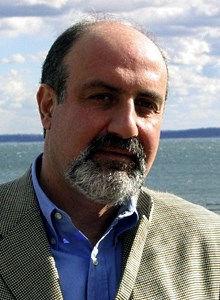
Nassim Nicholas Taleb is a Greek Orthodox Christian from Lebanon; the Levant. In the course of his book Antifragile, he promotes skepticism, theism, tradition, the writings of the stoics and seeks to restrict the claims of theory and "naïve rationalism."
Elsewhere I have said that often theory seems to make us stupider than we would be without the theory. This is particularly true when theory says something is not possible. A key phrase Taleb appeals to is from Friedrich Nietzsche, hardly a defender of tradition or theism, “Just because something is unintelligible to you does not mean it is unintelligent.” Many traditions, such as those involving fasting may seem unintelligible to many but there can be reasons for thinking that they are intelligent.
One of the things I have found interesting about Taleb is the way he extends what I had in my own thinking thought of as ‘mystery’ to areas of human life I had not previously considered. My list of the ‘mysterious’ had included life: what is it, where did it come from and why; consciousness, morality and free will. Emotion too is mysterious because it is implicated in a proper existential attitude to the world and yet it is not fully intelligible. Emotion complements reason but by definition is not simply reason itself. Thus its workings and logic has to be intuited and felt rather than fully explicated.
Thinkers devoid of intuition and emotion make a terrible impression on me. However, it is hard to point out the violence these thinkers do to the subtleties of human life. Our primary relationship with the world is not a theoretical one, thus a proper orientation to life allows for the unintelligible and doesn’t seek an unreasonable demand for clarity and explication.
Taleb extends mystery to include historical events, the workings of medicine and the future. We simply cannot predict the future and certainly not from extrapolating from current trends. If we can’t explain the past nor predict the future, then it may seem as though life is just a little too mysterious. But, like Socrates, Taleb’s starting point is that much of wisdom consists in acknowledging what we don’t know. Plato's Socrates thinks that having discovered our ignorance, we should seek to remedy the situation. Taleb probably has a more modest idea about how far we really do this.
Historical knowledge is limited by our inability to employ counterfactuals as a way of testing claims. The Treaty of Versailles is supposed to have caused World War Two. We can’t test this because we can’t re-run history between the wars to see what would have happened without the treaty. Similarly, we can’t remedy our inability to predict the future. We can appeal to certain heuristics, as Taleb points out, such as the Lindy effect. This states that the longer something has been around, the longer it will be around. For every passing year, we can add another in the future. For instance, if the pyramids have existed for four thousand years, we can anticipate another four thousand. If Twitter has existed for five years, we can expect another five years. This rule of thumb does not apply to living creatures since each passing year brings us one year closer to death and even for inorganic objects, no infallibility is claimed.
The skepticism of Taleb is applied to knowledge and theory but does not propose we might be brains in vats or similar logical possibilities. Like me, Taleb proposes to test whether someone is really skeptical or not by how he lives his life. David Hume, for instance, explicitly says that once he stops philosophizing he is happy to forget all about his supposed skeptical assertions and that he goes back to accepting reality much as he finds it. Such skepticism is thus phony and contrived. If an engineer tells you that a bridge is safe but one observes him driving ten miles out of his way to avoid it, then it’s safe to say that he doesn’t believe what he is saying.
Taleb’s skepticism does not extend to the fundamentals of our existence, nor to God. Taleb claims that the best historical skeptics have either believed in God or approved of doing so, hence he calls himself and them a skeptical fideist. Taleb claims that belief in God facilitates an appropriate skepticism about what we can know and could, to a degree, be replaced by notions of fate.
God, in via negativa theology is mysterious, hence there is likely to be an ineluctable element of mystery at the core of life. I have a colleague who says he does not believe in life because he says it is a poorly defined concept. I have another who doesn’t believe in free will because he ‘just doesn’t see how it’s possible.’ Here Nietzsche’s phrase is particularly applicable.
It has always seemed no coincidence that in seeking to kill God, the logical positivists also killed consciousness, meaning, purpose, emotion, beauty and morality because none of these things are susceptible to scientific verification and reference either.
A belief in an ineffable God does seem to make intellectual room for other ineffable aspects of life.
Concerning the prediction of the future, Taleb argues that rare events will be systematically missed. That is because many significant rare events have no precedent. We judge how high the Nile may flood by the previous high water mark, but that mark itself had no precedent and was thus unpredictable. Taleb’s The Black Swan goes on to enumerate the unpredictable rise and effects of inventions, political events, large weather events, etc., as also contributing to the unpredictability of the future.
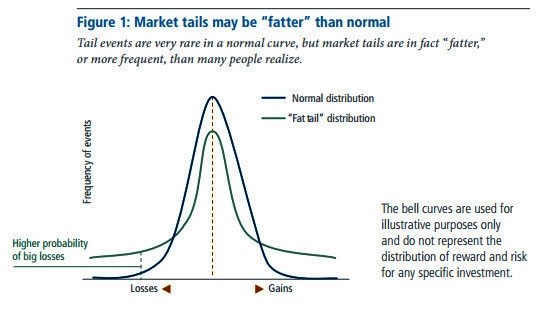
Attempts to use mathematical models to assess the stability of systems have systematic problems. Rare events lie in the ‘tails’ of assessments of probability (the points to the left and right of the main bell shape in bell curves) and are thus immeasurable. They will be particularly missed by model error since they are so rare they get mixed up with the ground level of what scientists call noise. In trying to distinguish signal and noise, signal has to rise in intensity and/or frequency above the base noise level, like a voice on a staticky telephone line. Thus we are bound to continue to be surprised by the unpredicted.
Imagine that your model missed just one event in fifty million. One person, Carlos Slim, in Mexico owns a huge proportion of the total wealth of the whole country, being at one point, the richest man on the planet. Your entire model will grossly misrepresent the wealth of Mexico by missing just that one person.
For Taleb, skepticism about knowledge is replaced by relative faith in trial and error and the exercising of optionality. Trial and error involves small scale tinkering whereby any error has no major consequences, but the pay-off may be enormous. This lopsided benefit-to-cost ratio is called asymmetry. It can go the other way too where you take a drug that is only even predicted to give a modest benefit of any kind, but may do you major damage, such as Vioxx’s damage to heart valves. The upside was modest pain relief and the downside was permanent heart damage and death.
‘Optionality’ involves recognizing the unexpected and unpredictable consequences of trial and error tinkering. Most inventions and discoveries are chance events; intelligence is involved in recognizing a good thing when you see it, even though you weren’t expecting it.
Medical error kills between three times, as accepted by doctors, and ten times as many people as car accidents, so one might be advised to avoid the medical community unless one’s condition is relatively serious, e.g., a matter of life or death. In that situation you don’t have much to lose so the downside is negligible and you have everything to gain. This avoidance of the medium or moderate Taleb calls barbelling – combining mostly low risk with some high risk. This describes tinkering above – failure doesn’t mean anything much. So, concerning one’s personal finances, Taleb recommends having most of one’s savings in the safest, most low risk form that one can find, perhaps inflation protected cash, and investing 10% of one’s money in high risk speculative ventures. You may gain a lot, but if you lose, you still have 90% of what you started with. Big upside, little downside. The ‘moderate’ option of investing all your money in medium risk ventures exposes oneself to rare events, Black Swans, that may have catastrophic effects. Those ‘rare’ events are far more common than theory and math based models predict.
So intelligence is employed in employing optionality, rather than needing a correct theory that explains why everything is the way it is, usually impossible, or predicting the future. Taleb’s recommendation is to rely on empirical observation as much as possible and to be skeptical about theories. Theories come and go, but the empirical remains stable. Weight training, properly done, will increase muscle size and strength. We don’t know why. Theories as to why are fragile. Today you get one explanation, tomorrow a new one.
Most inventions have been due to chance and involved little or no theory. The power loom and spinning jenny of the Industrial Revolution had nothing to do with science or Newton. They were the result of tinkering, as was the jet engine. The theory about how jets work came after the fact. Airplane wings work and we design them in wind tunnels. This is empirical. We don’t know why they work.
We can’t predict the future or future catastrophes, but we can predict that fragile things break and we do know that if a terrible event happens involving a nuclear power plant, the consequences will be horrendous. So we should design nuclear power plants anticipating terrible and rare events, not because we have ‘evidence’ that disasters will occur. We shouldn’t over optimize, but build in redundancies and back-up systems. Mathematical models encourage over optimizing and ‘efficiency’ but make things fragile to disaster.
Mathematical models and theories make things fragile. Empiricism and tinkering are antifragile. Tinkering benefits from uncertainty and variability and the unpredictable. Trial and error benefit from the unexpected. The fragile suffers from the unexpected and variable.
Taleb’s skepticism about the inappropriate use of mathematics and measurement in modern life fits my own. He has helped make me more skeptical of theory and explanations in a good way and he argues that good thinkers who give advice tend to focus on what doesn’t work rather than setting out some positive program, much as Socrates’ daimon tells Socrates what not to do. This fits my own pattern of lecturing in ethics, following Boethius in describing various illusions that we are prone to, such as the notion that complete sexual freedom is an unqualified boon.
What Taleb likes about tradition is that it tends to develop by trial and error and it is not dependent on theory to back it up. It is by definition not a passing fad. Like Nature, tradition has had a long time to fail. Nature and evolution are like a very very long scientific study and proceed by trial and error too. The errors are brutally selected out and happy accidents remain. Any proposal to alter the natural or traditional is an attempt to alter something that has proven to work by surviving. Therefore, the burden of proof is on those who want to introduce something unnatural and non-traditional. The person who wants to assert something controversial must provide evidence for it. We have evidence for the non-lethality and good of the natural and traditional due to their longevity. But we don’t for the unnatural and novel.
Butter is natural; margarine, man-made. Sugar is natural; artificial sweeteners and high fructose corn syrup are not. Scientifically created evidence of safety is required for one and not the other.
Taleb argues that scientists tend to get this confused and say, ‘where’s the evidence that margarine is unsafe?’ At the time margarine was introduced, there was no evidence it was unsafe, but no evidence that it was safe. If butter were lethal, we would have found out by now. It took thirty or forty years to discover that margarine was terrible for you and worse than butter, but by then the damage was done.
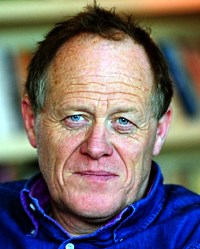
James Le Fanu in The Rise and Fall of Modern Medicine describes how Ancel Keys succeeded in getting the public to pathologize meat and potatoes, falsely claiming that the high fat Western diet is implicated in heart disease. It is not, although this idea is still current. Before the 1920s, almost no one died of heart attacks. The phenomenon of otherwise healthy seeming middle-aged men experiencing crushing chest pain and dying mostly did not exist before then. Starting from the 1920s there was an epidemic of heart disease that continued to get worse and worse until the late 1960s when it started to decline. In the 1950s, Keys suggested the culprit was fat in the Western diet; later noting the relative absence of heart disease in countries like Japan. Heart experts sensibly rejected this suggestion because the massive rise of heart disease was not accompanied by any change in Western eating habits. The consumption of fat remained level, while heart attacks were increasing exponentially. That should be the end of the discussion for any sensible and logical person. In addition, doctors knew that heart attack sufferers ate no differently from anyone else. The American Heart Association refused to recommend lowering fat consumption because of the clear lack of association. However, two years later, Keys and a like-minded colleague, Jeremiah Stamler, got themselves appointed to the AHA committee and got the committee to reverse the committee’s earlier recommendation despite no further evidence arising and even the new committee’s admission that no clear connection had been established.
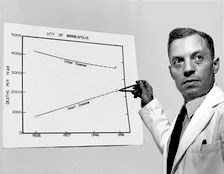
Ancel Keys’ initial study involved three hundred ‘at risk’ Minneapolis businessmen. The risk factors included smoking, high blood pressure and high blood cholesterol which is basically unrelated to cholesterol consumption, being manufactured by the liver if consumption falls. In the 1970s, the most expensive medical experiment ever undertaken, at a cost of two hundred million dollars, was performed involving 50,000 factory workers. Radically changing their diets had no appreciable effect, as predicted all along. The most extreme dietary changes could only alter blood cholesterol by five percent, which was medically insignificant.
It turned out the incidence of heart disease which declined in the 1980s, was due to the bacterium chlamydia and could be treated with antibiotics. Those at the highest risk could also take small doses of aspirin to reduce the chance of clots which, in combination with plaque narrowed arteries, play a role in triggering a heart attack.
This was all part of the Social Theory of Disease that blamed poor health on sick people when their behavior was typically no different from anyone else’s.
So, we in the West can go back to steak and potatoes and need not think that a Mediterranean or any other non-traditional diet will confer health benefits. Japanese people get stomach cancer more often; Westerners, colon cancer. There do seem to be health benefits from fasting, but this is traditional; being a part of many religious traditions worldwide. These benefits became noticeable when the incidence of death from all causes went down in Norway in WWII when the Nazis invaded. Likewise, the health of the Holocaust victims initially improved in the early stages of food deprivation and longevity increased by six years during the Great Depression in the U.S.
Again, the theories as to why fasting is good for you can come and go. The empirical observation is that for whatever reason fasting is beneficial. Mice live much longer and suffer much less from Parkinson’s disease or Alzheimer’s if subjected to alternate day fasting, though the total number of calories over time remains constant. One theory is that your body is in a go-go-go mode when protein is ample, but repair mode in times of scarcity. This may be wrong, but if one bases one’s actions on observation rather than theory, then it doesn’t matter if the theory is right or not.
Taleb’s skepticism is a skepticism you can live by. Taleb argues that believing in God can keep Man’s arrogance in check and is an admission that he can’t understand everything since God is ineffable. Math and theory can be kept in bounds. God is not to be replaced by scientism claiming to provide a theory of everything, and certainly not prospectively. We can remember to trust what has been around for a long time and get over our neomania accompanied by the conviction that our lives are dominated by change when in fact many many features of our lives have remained more or less stable for two thousand years and technology is fragile and will disappear. The clothes we wear, the houses we live in, the beds we sleep in, the taverns we drink and eat in, the chairs we sit on and the kitchen utensils we use are mostly old and stable. Even cars and bicycles are just refinements of older technology. Our obsession with pleasure and money is not new and the wine we drink and the artisanal cheese we eat have been around for millennia or centuries.
Most inventions were not the result of theory and most modern medicines were chance discoveries. We still don’t know why many medicines work, particularly psychiatric ones. If we insisted that we needed a theory and explanation for everything we would have deprived ourselves of medical advances, not to mention life, consciousness, morality, beauty, free will and God.
By 1601, according to David Wootton in Bad Medicine: Doctors Doing Harm Since Hippocrates, scurvy was effectively cured by carrying lemons on ships. This practice, however, was abandoned. Wootton surmises that it was due to doctors who could make no sense of it theoretically. Bad arguments drove out good ones and theory trumped empiricism. The phenomenon of telepathy continues to be rejected partly because it tends to occur between people closely emotionally connected like friends and relatives, thus it is almost impossible to study in randomized trials and partly because atheists intuit that something nonmaterial may be involved and hence it might provide a toehold for God and partly because like the doctors with regard to scurvy, it makes no sense on current theoretical grounds. Many have in fact refused to look at any evidence precisely because they have deemed it impossible theoretically and because it is threatening to crude materialism. This kind of willful blindness led to nearly two thousand five hundred years of almost no therapeutic progress in medicine. One may not care about telepathy, but when free will and morality are also rejected for similar reasons, then one can’t claim that their existence is irrelevant to one’s life.

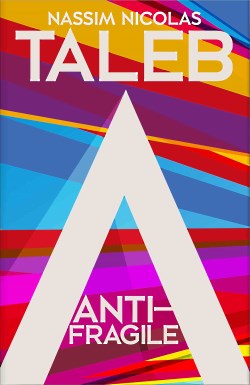
moderation and intelligence is the key...
Submitted by mpresley on Tue, 2014-02-18 00:43.
If you look around, most Americans are in terrible shape, physically. I was the same way, but learned that moderation is really the key. There are many tricks, and it requires some discipline. It helps if you have someone who can show you by example. Once you learn to "listen to your body" you'll know "instinctively" what is good for you, and what you should avoid. Generally, anything processed, frozen to be microwaved, or made in a restaurant (too much salt) ought to be avoided. You can't avoid everything bad, but just cutting it by half will make a huge difference.
As far as any particular "study"? If you don't like the results, wait another year and another experiment will prove the opposite. That much is certain.
Re: moderation and intelligence
Submitted by Richard Cocks on Tue, 2014-02-25 14:14.
Thank you for taking the time to read the article and to respond. What you suggest might work, or you could choose probably any traditional diet whatsoever, though picking one that is suitable for one's genetic background might work best e.g., unprocessed milk for those of European descent only. James Le Fanu would like us to give up epidemiological studies concerning health all together. As mpresley implies, the degree to which they contradict themselves should be enough to permanently discredit them. As Le Fanu says on p. 332 of 'The Rise and Fall of Modern Medicine:'
Normal 0 false false false EN-US X-NONE X-NONE Any ‘science’ capable of producing such conflicting findings is not science at all.
Coffee does or does not cause bladder cancer, congenital defects, or heart disease.
Alcohol does or does not cause breast cancer; keeping pets does or does not cause multiple sclerosis.